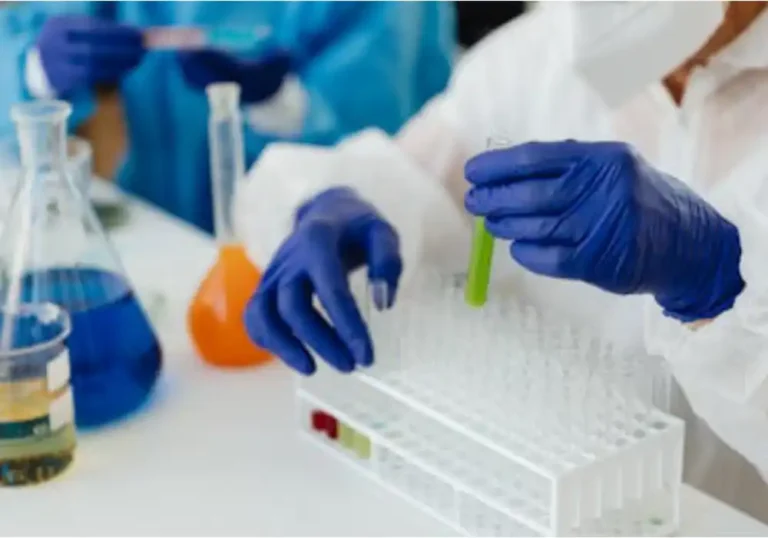All You Need About Biology and Its Different Branches in A Nutshell
Biology is a fascinating and ever-evolving field of study which has an enormous amount of knowledge to discover and explore.

With the advancement of technology, we are now able to delve deeper into many areas that were previously unknown or difficult to understand.
In this article, we will discuss all you need to know about Biology and its different branches in a nutshell.
We’ll focus on the different disciplines of Biology, their specific functions and objectives, and why they are important for us humans.
Biology Tuition
The word ‘biology’ is derived from two Greek words- bios (meaning life) and Logia (meaning the study of). As the name itself suggests, biology is the study of life. This is a simple definition of biology.
A more comprehensive definition would take into account the detailed studies of living organisms and their life processes.
Biology is a very important subject because humans are surrounded by different kinds of living organisms, and some biology terms (like genetics, species, infection, and cell) are very commonly used.
Because of the large variety of living organisms, the field of biology is very vast. It is not surprising then that there are numerous branches of biology.
The different branches of biology complement each other, and each branch requires in-depth knowledge. The most important branches of biology have been listed below
ANATOMY AND PHYSIOLOGY
Anatomy is the branch of biology that studies the structure of an organism. A related field is physiology that deals with the function of different structures of an organism. These two biology branches are complementary to each other.
Anatomy and physiology are two separate but related fields of science that aim to understand the body’s structure and functions.
Anatomy is the study of organisms’ shapes, organs, bones and cells while physiology focuses on how these structures work together to create a functioning body. Together, anatomy and physiology form the basis for understanding how living organisms interact with their environment.
For example, a physician may use knowledge of anatomy to diagnose an illness or injury by examining the patient’s external features such as skin texture or certain physical signs like pulse rate.
Physiology is used to explain why these symptoms are appearing in the first place; it allows doctors to understand what mechanisms may be causing an issue internally in order to prescribe appropriate treatments accordingly.
Immunology
This branch of biology involves studying about the immunity and the ability of organisms to fight infections.
Genetics
This field of biology studies genetics, heredity and variation in living organisms.
Organism-specific biology branches
In addition to the above major fields of biology, the organism-specific biology branches are-
- Mycology – Study of fungus
- Phycology– Study of algae
- Virology – Study of viruses
- Zoology– Study of animals
- Botany– Study of plants
- Bacteriology – Study of bacteria
- Parasitology – Study of parasitic organisms
Marine biology
This is the detailed study of all organisms living in oceans and other marine bodies.
Exobiology
The branch of biology dealing with extra-terrestrial life forms is called Exobiology.
Cell biology
Biology believes that the cell is the basic unit of life. The field of cell biology involves studying the different processes of the cell.
Developmental biology
Developmental biology deals with how the different organisms grow and develop. It encompasses the knowledge about regeneration, reproduction, and differences in different types of organisms.
Biotechnology
This branch of biology studies the ways to exploit living organisms for human uses like the production of antibiotics, biofuels, new vaccines, etc.
Molecular biology
This branch of biology deals with the formation and function of key molecules that are present in organisms. Proteins and nucleic acids are the most important among such molecules.
Biochemistry and Biophysics
These two biology branches integrate biology with chemistry and physics, respectively. Biochemistry is the branch of biology that studies the chemical reactions inside a living organism. Biophysics is the field that applies physics laws to living organisms.
Ecology
This branch of biology studies the relationship of living organisms to their surroundings and environment.
Radiobiology
The field of radiobiology studies the effect of radioactivity and radiation on living organisms.
Evolutionary biology
The study of different ways by which living organisms have developed during the history of the earth is included in this field.
Conclusion Points
Biology is the scientific study of life and living organisms. It is an incredibly broad field, one that encompasses all aspects of life, from the smallest microorganisms to the largest creatures.
Biology is divided into various sub-disciplines, each devoted to studying different aspects of life. These branches include biochemistry, genetics, physiology, ecology, evolutionary biology and morphology.
Biochemistry focuses on understanding how chemical reactions within cells create energy and enable them to carry out their functions.
Genetics looks at how traits are passed down from parents to offspring while physiology examines individual organ systems in animals and plants.
Ecology studies species interactions with their environment and evolutionary biology investigates how species have changed over time through natural selection and adaptation.
Lastly morphological analysis explores the anatomy of organisms as well as their form and structure.
An understanding of different biology branches can be obtained by studying relevant biology experiments and understanding the connection between these branches.
FAQs
1. Question: What are the main branches of biology?
Answer: Biology has many fascinating branches! Key ones include Anatomy (structure), Physiology (function), Genetics (heredity), Ecology (environmental interactions), and Biotechnology (using organisms for human benefit). Each branch dives deep into understanding life from different angles.
2. Question: What is the study of genetics?
Answer: Genetics is all about how traits are inherited and passed down from one generation to another. It helps us understand why we look the way we do and how species evolve over time. Think of it as the blueprint of life!
3. Question: What is the difference between anatomy and physiology?
Answer: Anatomy focuses on the structure of living organisms—think bones, organs, and tissues—while physiology studies how these parts function and work together. Both are crucial for understanding how life operates!
4. Question: What is marine biology?
Answer: Marine biology is the study of life in oceans and seas. From the tiniest plankton to the biggest whales, it explores how marine creatures live and interact in their watery habitats. It’s like a deep dive into the underwater world!
5. Question: Why is ecology important?
Answer: Ecology is all about the balance between living organisms and their environment. It helps us understand how species coexist, adapt, and survive, making it crucial for preserving biodiversity and addressing environmental issues. It’s the science of life’s interconnectedness!





